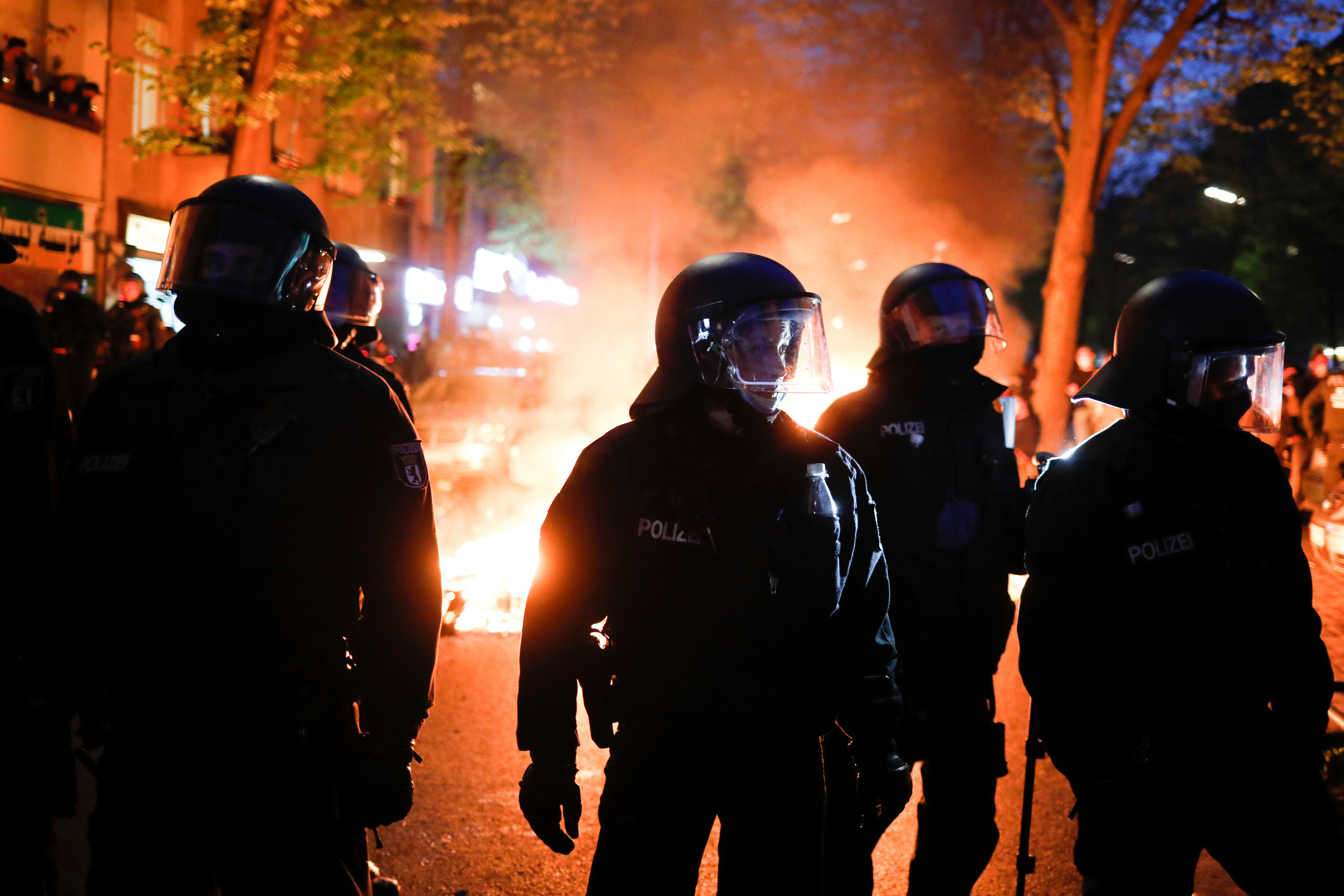Over 50 police injured, 250 detained in Berlin May Day riots
The German Police Union says more than 50 police officers have been injured and over 250 protesters have been detained after traditional May Day rallies in Berlin turned violent

Your support helps us to tell the story
From reproductive rights to climate change to Big Tech, The Independent is on the ground when the story is developing. Whether it's investigating the financials of Elon Musk's pro-Trump PAC or producing our latest documentary, 'The A Word', which shines a light on the American women fighting for reproductive rights, we know how important it is to parse out the facts from the messaging.
At such a critical moment in US history, we need reporters on the ground. Your donation allows us to keep sending journalists to speak to both sides of the story.
The Independent is trusted by Americans across the entire political spectrum. And unlike many other quality news outlets, we choose not to lock Americans out of our reporting and analysis with paywalls. We believe quality journalism should be available to everyone, paid for by those who can afford it.
Your support makes all the difference.More than 50 police officers were injured and over 250 protesters were detained after traditional May Day rallies in Berlin turned violent, the German Police Union said Sunday.
More than 20 different rallies took place in the German capital on Saturday and the vast majority of them were peaceful. However, a leftist march of 8,000 people through the city's Neukoelln and Kreuzberg neighborhood, which has often seen clashes in past decades, turned violent. Protesters threw bottles and rocks at officers, and burned garbage containers and wooden pallets in the streets.
“We don't have any final numbers, but regarding the known more than 50 injured colleagues and more than 250 detainments, it's clear that we were far removed from a peaceful May 1,” Stephan Kelm, Berlin's deputy chief of the police union, told German news agency dpa.
He condemned the throwing of bottles and rocks and the burning barricades on the streets, saying, "These are clear signs that it’s not about political expression but that the right to assemble was abused to commit severe crimes."
There's a nightly curfew in most parts of Germany currently because of the high number of coronavirus infections. But political protests and religious gatherings are exempt from the curfew.